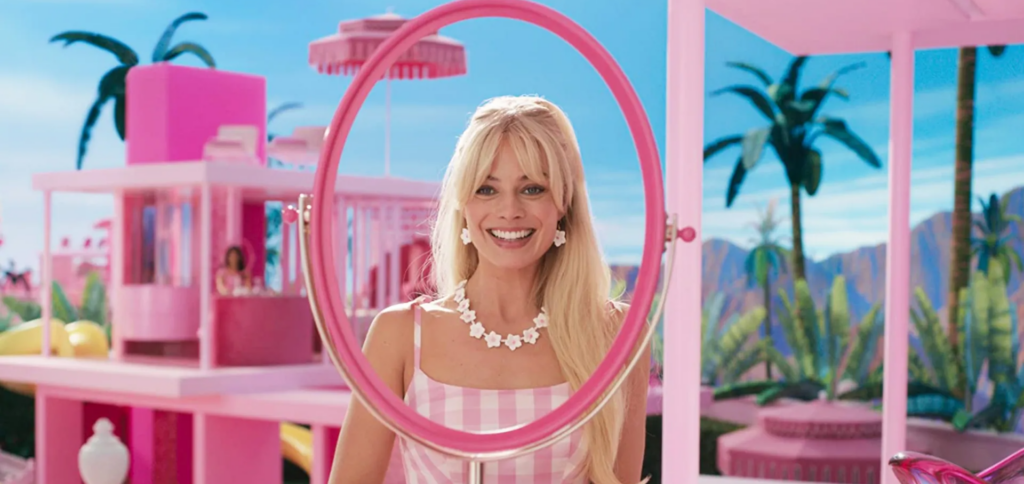The production directed by Greta Gerwig, which is also being shown in the United Arab Emirates and Bahrain, is not yet available in Qatar or Oman.
ADVERTISING
In Dubai, whose authorities are among the least conservative in the region, women decided to wear pink abayas to watch the feature film in a cinema in a wealthy suburb of the emirate.
“We didn’t imagine that a film like this would be shown in the Gulf countries,” Wadima Al-Amiri, an 18-year-old girl who went to the cinema with her friends to draw her own conclusions amid the controversy, told AFP.
Kuwait banned the film for “offending public morals”. But critics also accuse him of spreading an extreme view of female emancipation.
ADVERTISING
In film production, “barbies” occupy roles traditionally reserved for men in these countries. Only one of them is pregnant and the “Kens” remain in the background in the narrative.
Challenge to masculinity?
The criticism did not discourage Mounira, a 30-year-old Saudi woman who went to see the film with her three daughters, all wearing pink outfits.
“If it includes values and principles that are opposed to ours, it should not be projected onto Saudi Arabia or other Gulf countries. But we came to give the film a chance,” he told AFP.
ADVERTISING
A few years ago, Saudi Arabia took important steps towards women's rights. Since 2018, they have been able to drive and travel without being accompanied by a man. The country also sent an astronaut into space.
However, these changes, which occurred under the policies of Crown Prince Mohamed bin Salman, were also accompanied by pressure from feminist activists, many of whom are in prison.
The malaise is palpable in the country, where cinemas only reopened in 2017, after years of bans.
ADVERTISING
“We want more freedoms and more openness, but when it comes to Barbie, I heard it challenged masculinity,” says Hanan Al Amoudi, a Saudi tourist passing through Dubai, who refused to see the film.
The woman, who wears the full Islamic veil, claims to support the “emancipation of women”, as long as it is carried out in a “reasonable” way.
“A man looking like a woman by putting on makeup and dressing [in a feminine way]… is something I don’t like,” he said, referring to the role of Ken, played by Ryan Gosling.
ADVERTISING
For Kuwaiti journalist and women's rights defender Sheikha Al Bahaweed, who opposes censorship in her country, the film presents “one of the worst, if not the worst, version of feminism”, highlighting the exaltation of “white feminism, colonial and superficial”.
“Feminism does not consist of replacing a patriarchal system with a matriarchal system, but in humanity achieving a system based on justice and equal opportunities,” he told AFP.
Read also
* The text of this article was partially generated by artificial intelligence tools, state-of-the-art language models that assist in the preparation, review, translation and summarization of texts. Text entries were created by the Curto News and responses from AI tools were used to improve the final content.
It is important to highlight that AI tools are just tools, and the final responsibility for the published content lies with the Curto News. By using these tools responsibly and ethically, our objective is to expand communication possibilities and democratize access to quality information. 🤖




